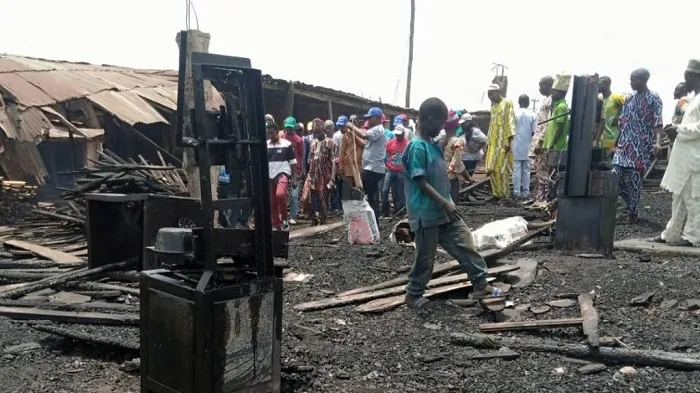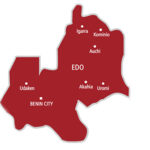Last week Monday, the Daily Trust newspaper that carried my piece on the fire that engulfed the Maiduguri Monday market was hardly getting off the press when news came about another devastating fire incident at the Singer Market in Kano.
The fire at Singer Market was coming hot on the heels of two other major fires in Kano markets within the space of fewer than two weeks. The first fire broke out in the ancient Kurmi market on March 1, where 80 shops and properties worth millions of naira were destroyed. A week after the Kurmi market fire, tragedy struck at the popular Rimi market where 19 shops, a mosque, and goods worth millions of naira perished.
And as I was writing today, Saturday, the news is just coming in that the Gamboru market in the heart of Maiduguri is burning, with the same dreary prospect of the traders losing millions of naira worth of goods. Alas! This seems to be a grim reenacting of the 1979 episode when both the old Maiduguri Monday market and the Gamboru market got burnt one after the other within some days. There has also been an earlier report this same morning that Biu Timber market, about 180km south of Maiduguri, has been burnt down. This even disrupted elections held around its vicinity.
Fires incidences affecting markets in the far northern part of the country seem to be the norm year in and year out. They are far more prevalent than you want to believe. The pity of it all is that the reaction of governments across the states follows the same routine. Following a market fire, there would be frenetic activities by officials of the state government covering a visit of the state governor or a commissioner. The visit to the destroyed market would be lavishly covered by the media, where a huge donation to alleviate the suffering of the traders would be made. An announcement will follow of setting up a high-powered committee to uncover the root causes of the fire and to find lasting solutions.
The committee would work hard to produce a report, finding the same root causes that have precipitated the same fires earlier, and elsewhere. The committee would also proffer the same solutions other committees have given before. The market would then be rebuilt, the traders would return to their new stalls and life goes on again. The root causes of the fire would be forgotten until another fire strikes again.
There is no gainsaying the fact that the modern markets we have nowadays have been built under the aegis of the best building practices, with all the appurtenances of a modern market. The rows of stalls would be adequately spaced with tarred roads running between them. There would be offices for officials to supervise and keep the market in check. Some of the markets would even have a firefighting engine dedicated to them. For a length of time, the new market would be spick and span.
Maiduguri Monday market was in a similar condition in its glory days in the mid-1980s. It was brand new and a marvel to behold. In the late 1980s, the market was one of the agencies under my purview as a permanent secretary in the Governor’s Office and whenever I went to a meeting in the market with the general manager, Major Ali Geidam (rtd), I always came away impressed with how the market was kept. Sadly, in due course, everything would degenerate.
Like in all similar markets, the items in the stalls bulged to the roads, and newcomer traders adjoined the original stalls with temporary sheds which in time became an organised chaos blocking all vehicular movements. Congestion had set in and when a fire occurred, the whole market would burn down, because in that chaos all help would be impossible to be rendered.
From my perspective, therefore, to save our markets from devastating fires and recurrent anguish to our traders, we need to restore discipline in the markets. It would be an unpopular pathway to take and most politicians would dread treading that track, but it is the best in the circumstances. We were witnesses to how Nasir El-Rufa’i decongested Abuja markets when he was FCT minister, some 20 years ago. Lately, as governor of Kaduna State, he has done the same with some degree of success. There is then a template for other governors to copy.
As for the traders, there is probably a need to bring them into the insurance fold to alleviate their losses whenever a fire occurred. It is a pity that the level of acceptance of insurance as a device to minimise risk is abysmally low in the far northern parts. But there is now a Shari’a-compliant insurance that can be beneficial to traders, replacing their lost properties whenever such disasters strike. State governments could even make it mandatory for traders to take insurance cover for stalls as a condition for allocation. All these will go a long way to alleviate financial losses both to the governments and the traders alike.

 Join Daily Trust WhatsApp Community For Quick Access To News and Happenings Around You.
Join Daily Trust WhatsApp Community For Quick Access To News and Happenings Around You.


